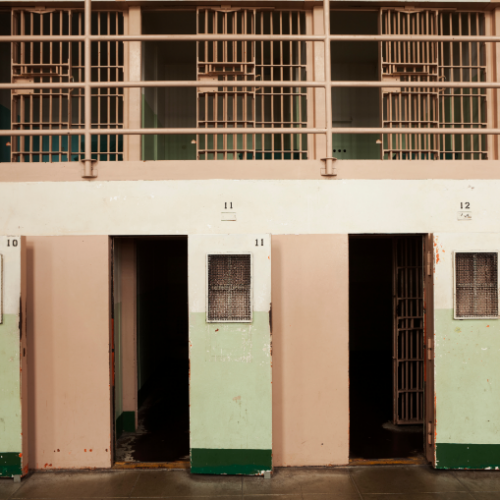
Minnesota Governor’s Council on Justice Reinvestment Reviews Proposed Policy Options
On January 27, 2022, the Minnesota Governor’s Council on Justice Reinvestment met for the third time to discuss proposed policy options focused on improving the effectiveness and equity of the state’s supervision system. The options are based on findings from a comprehensive quantitative analysis and supervision assessment conducted by the CSG Justice Center as part of the state’s Justice Reinvestment Initiative (JRI) and were developed by the Delivery System Standards and Funding Policy Working Group with assistance from the CSG Justice Center.
The policy options address the following objectives:
- Ensuring counties are equitably funded and positioned to comprehensively implement evidence-based supervision
- Ensuring effectiveness and equity across the state’s different probation
- Holding people on probation consistently accountable
- Prioritizing quality assurance of supervision practices
- Reducing racial disparities across the supervision systems
- Improving access to behavioral health care in the community for people under community supervision
- Ensuring that victims of crime are meaningfully engaged in restorative supervision practices
- Measuring outcomes
The council also heard testimony from members of the public including people who have been involved in the criminal justice system, victims of crime, or who have worked within the justice system.
The council reported the findings of their comprehensive examination of the state’s supervision system to the governor on February 1, 2022. The group will continue to explore policy recommendations and deliver their final recommendations by the end of February to inform action during the 2022 legislative session.
Both the council—a bipartisan, interbranch committee—and the working group—a committee established to update the state’s supervision funding formula—are overseeing JRI in the state, which is funded by the U.S. DOJ’s Office of Justice Programs, Bureau of Justice Assistance and The Pew Charitable Trusts.
©Ben Krut
This project was supported by Grant No. 2019-ZB-BX-K002 awarded by the Bureau of Justice Assistance. The Bureau of Justice Assistance is a component of the Department of Justice’s Office of Justice Programs, which also includes the Bureau of Justice Statistics, the National Institute of Justice, the Office of Juvenile Justice and Delinquency Prevention, the Office for Victims of Crime, and the SMART Office. Points of view or opinions in this document are those of the author and do not necessarily represent the official position or policies of the U.S. Department of Justice.
A positive school experience, where a child feels secure, is essential for their well-being. However, for many children…
Read MoreWhen returning to their communities from criminal justice settings, people with behavioral health needs face barriers in accessing…
Read More Supporting Children of Incarcerated Parents: Reimagining School and Community Collaboration
Supporting Children of Incarcerated Parents: Reimagining School and Community Collaboration
A positive school experience, where a child feels secure, is essential for their well-being. However, for many children with incarcerated parents—one in 14 in the U.S.—school can feel far from safe due to stigma, trauma, and a lack of understanding.
Read More Bridging Communities and Correctional Systems: Q&A with CSG Justice Center Advisory Board Member Commissioner Nicholas Deml
Read More
Bridging Communities and Correctional Systems: Q&A with CSG Justice Center Advisory Board Member Commissioner Nicholas Deml
Read More
 Assigned to the Cloud Crew: The National Incarceration Association’s Hybrid Case Management for People with Behavioral Health Needs
Assigned to the Cloud Crew: The National Incarceration Association’s Hybrid Case Management for People with Behavioral Health Needs
When returning to their communities from criminal justice settings, people with behavioral health needs face barriers in accessing basic needs—including food, housing, employment, transportation, education, clothing, and substance use and mental health services—which increases their risk of experiencing a crisis.
Read More Meet the Medicaid and Corrections Policy Academy Mentor States
Meet the Medicaid and Corrections Policy Academy Mentor States
New Hampshire Department of Corrections Commissioner Helen Hanks presents at the Medicaid and Corrections Policy Academy in-person meeting.
Read More Taking the HEAT Out of Campus Crises: A Proactive Approach to College Safety
Taking the HEAT Out of Campus Crises: A Proactive Approach to College Safety
The sharp rise in school shootings over the past 25 years has led school officials across the U.S. to take a closer look at ways to keep students safe. For Chaffey College in Rancho Cucamonga, California, a tragic incident at a nearby university hit close to home and spurred campus leaders to revisit their own school’s threat assessments and crisis responses.
Read More










